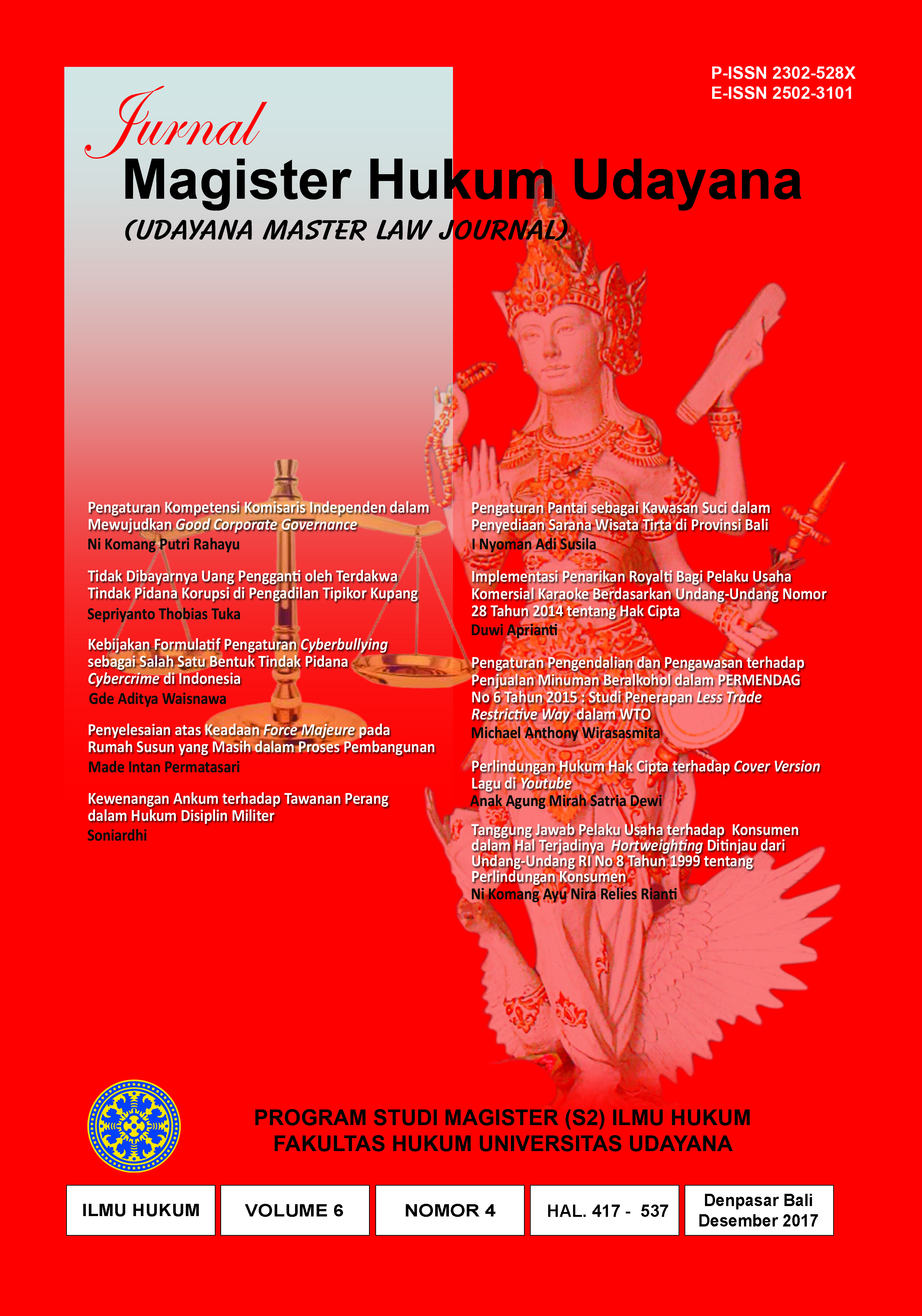TANGGUNG JAWAB PELAKU USAHA TERHADAP KONSUMEN DALAM HAL TERJADINYA SHORTWEIGHTING DITINJAU DARI UNDANG-UNDANG RI NO 8 TAHUN 1999 TENTANG PERLINDUNGAN KONSUMEN
Abstract
Shortweighting is one of the selling practices of goods that harm consumers. Where the actual weight of the item is less than the weight indicated on the goods packaging label. Clearly, consumers are severely disadvantaged as a result of changes in the goods made by businessmen. With The result that consumers get goods that are not in accordance with the conditions and the promised warranty or stated in the label. The legal issues in this writing is 1. How is the liability of businessmen to consumers in the case of shortweighting reviewed by Law No. 8 of 1999? and 2. What kind of dispute settlement efforts that can be taken by the consumer in case of shortweighting? This research is normative legal research. The conclusion of this study is that the businessmen is to be responsible if proven to occur sales practice shortweighting. It is contained in Article 19 of Law No. 8 of 1999 on Consumer Protection. The legal efforts to resolve disputes that can be reached by consumers can be through 2 (two) ways of settling disputes, outside the court or alternative dispute resolution and settlement of litigation. The settlement of disputes outside the court can be through the settlement of disputes solved by deliberation by the parties and could be through the Indonesia Consumer Dispute Settlement Institution (BPSK).
Shortweighting adalah salah satu praktek penjualan barang yang merugikan konsumen. Dimana berat barang yang sebenarnya adalah lebih kecil dari berat yang tertera pada label kemasan barang. Jelas sekali bahwa konsumen sangat dirugikan akibat adanya perubahan barang tersebut yang dilakukan oleh pelaku usaha. Sehingga konsumen mendapatkan barang yang tidak sesuai dengan kondisi dan jaminan yang dijanjikan atau yang dinyatakan dalam label. Rumusan masalah dalam penulisan ini adalah 1. Bagaimanakah tanggungjawab pelaku usaha terhadap konsumen dalam hal terjadinya shortweighting ditinjau dari Undang-Undang Nomor 8 Tahun 1999? dan 2. Apakah upaya penyelesaian sengketa yang dapat ditempuh oleh konsumen bila terjadi shortweighting? Jenis penelitian yang digunakan adalah jenis penelitian hukum normatif. Kesimpulan dari hasil penulisan penelitian ini bahwa pelaku usaha bertanggung jawab apabila terbukti terjadi praktik penjualan shortweighting. Hal tersebut tertuang dalam Pasal 19 Undang-Undang Nomor 8 Tahun 1999 tentang Perlindungan Konsumen. Upaya penyelesaian sengketa yang dapat ditempuh konsumen dapat melalui 2 (dua) cara yaitu penyelesaian sengketa diluar pengadilan dan penyelesaian litigasi. Penyelesaian sengketa di luar pengadilan yaitu bisa melalui penyelesaian sengketa secara damai oleh pahak pihak sendiri dan bisa melalui Badan Penyelesaian Sengketa Konsumen (BPSK).
Downloads
Jurnal Magister Hukum Udayana (Udayana Master Law of Journal) by Faculty of Law Udayana University is licensed under a Creative Commons Attribution-NonCommercial 4.0 International License.



















